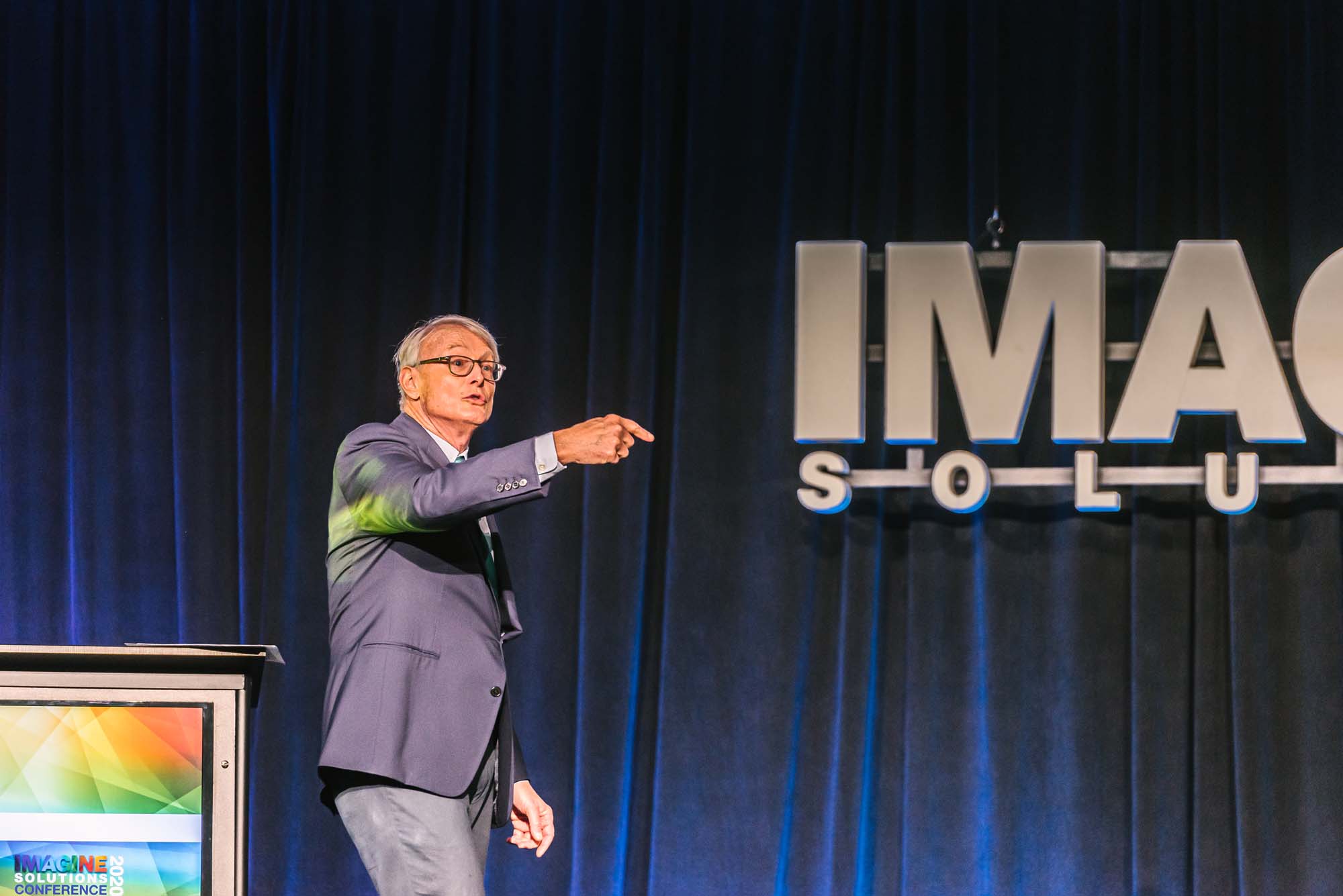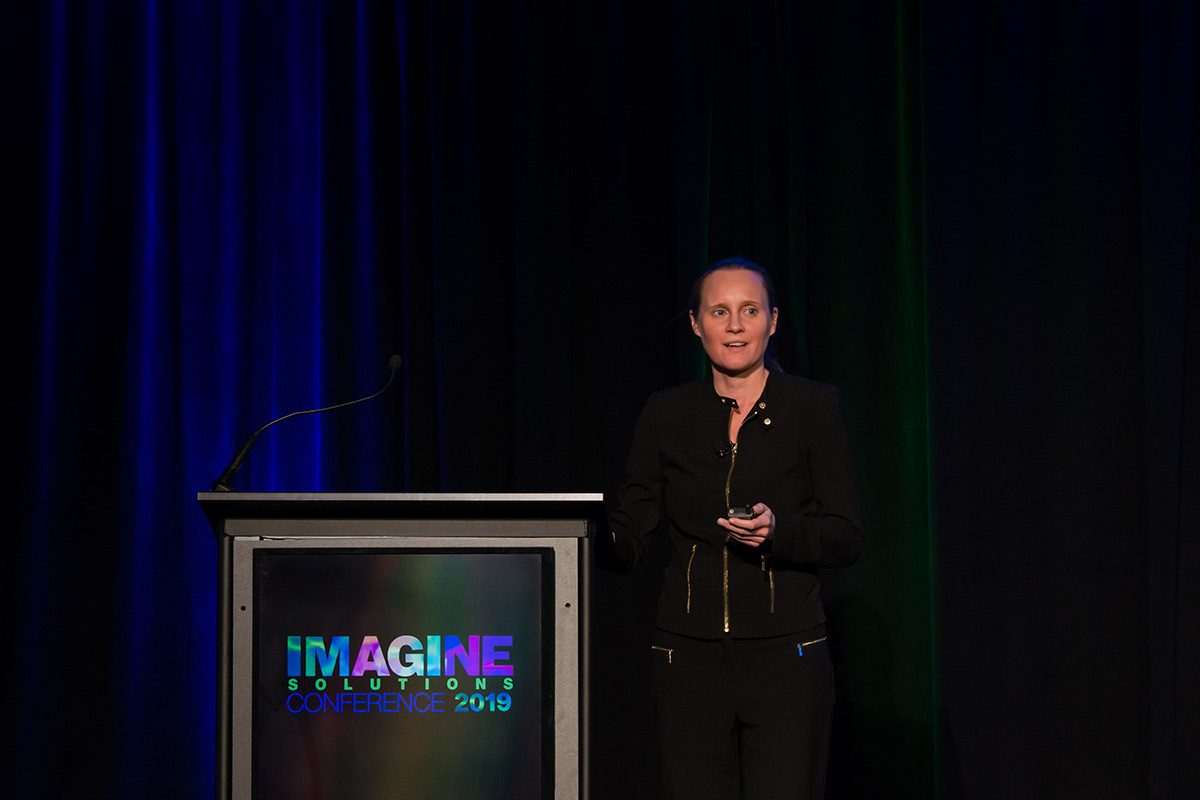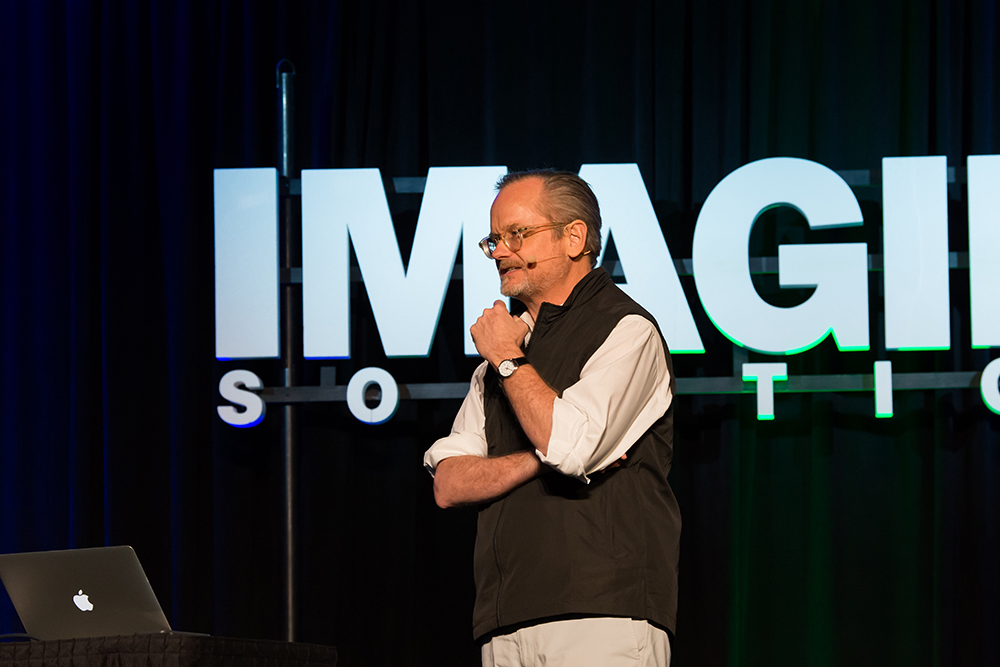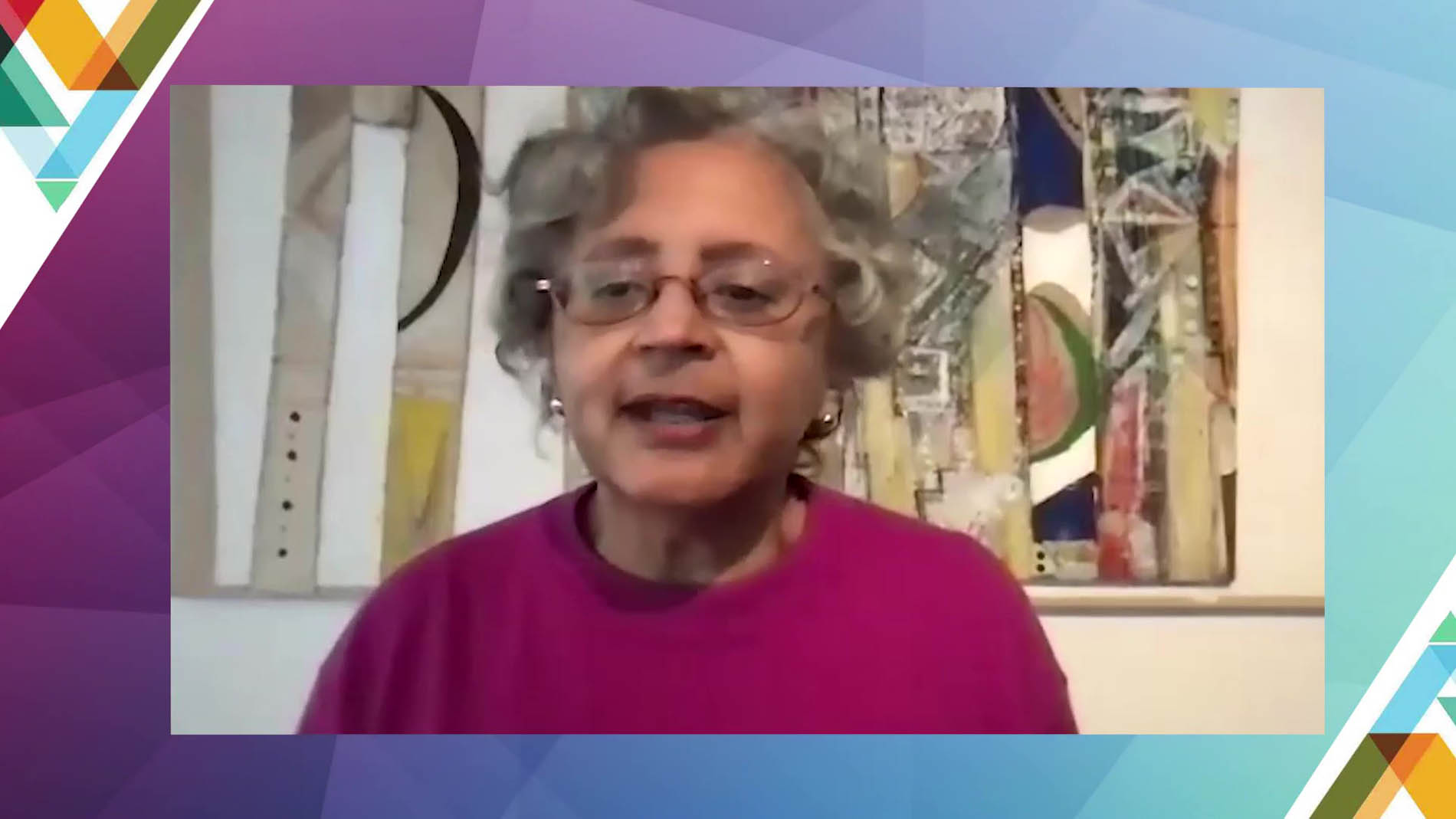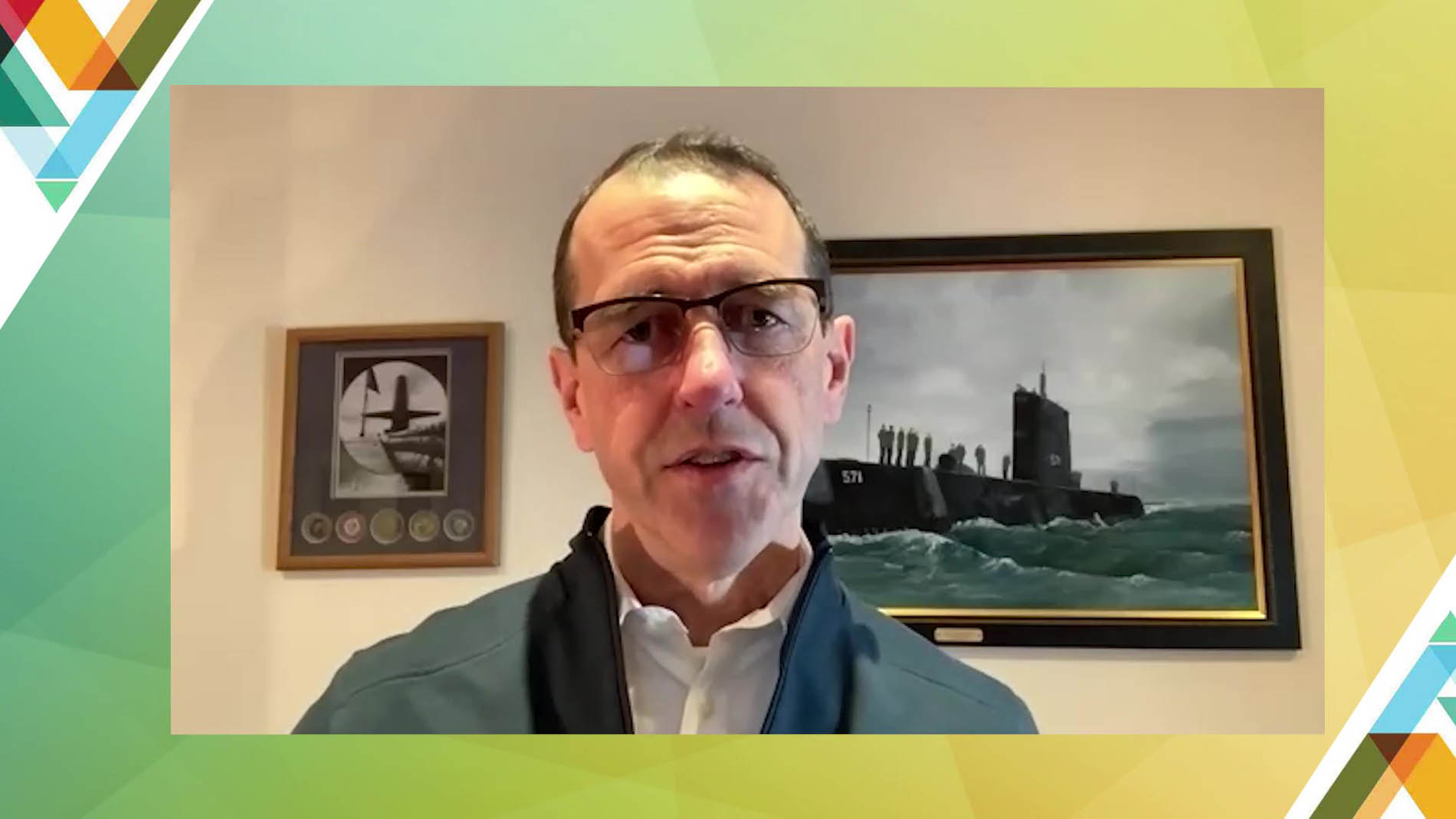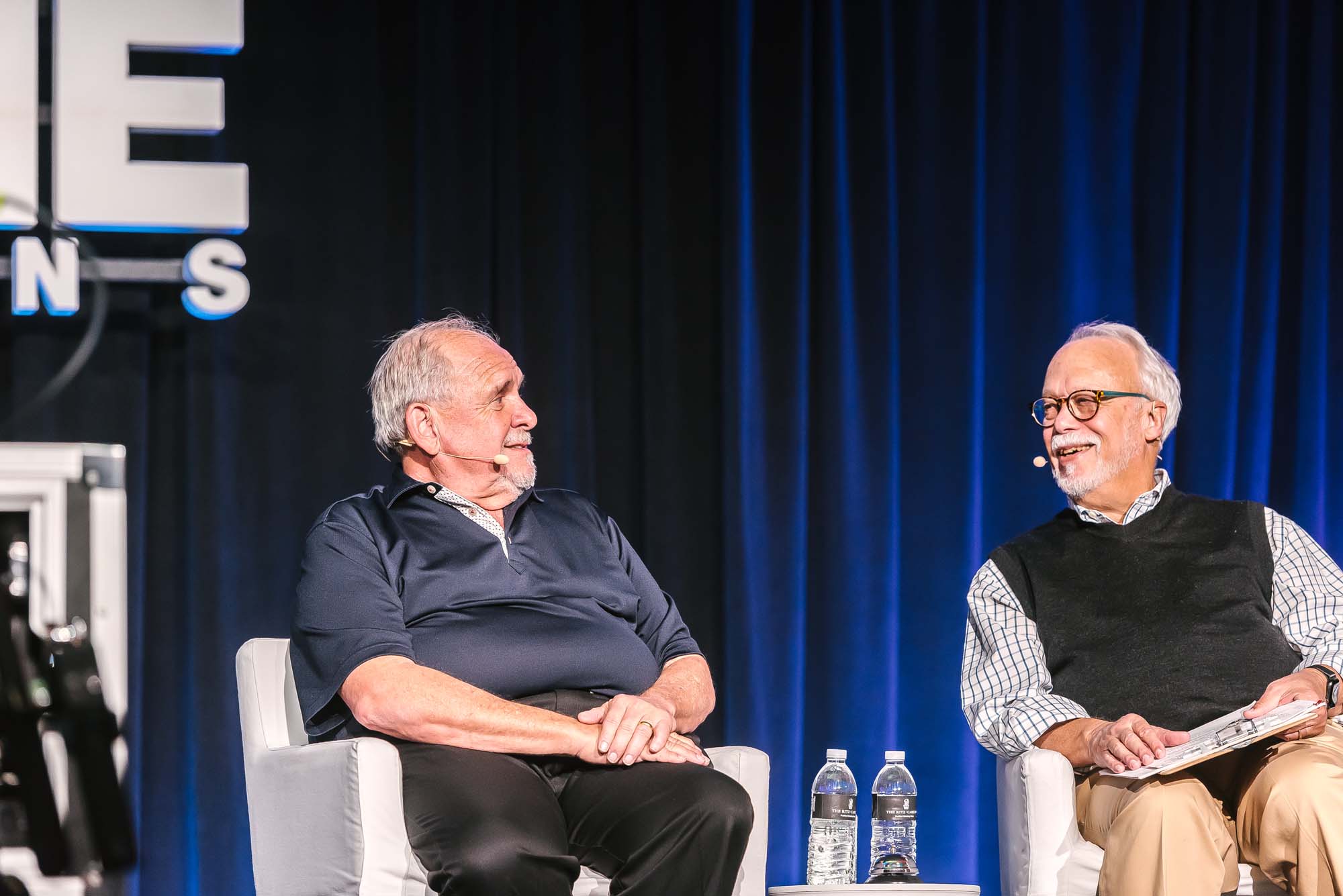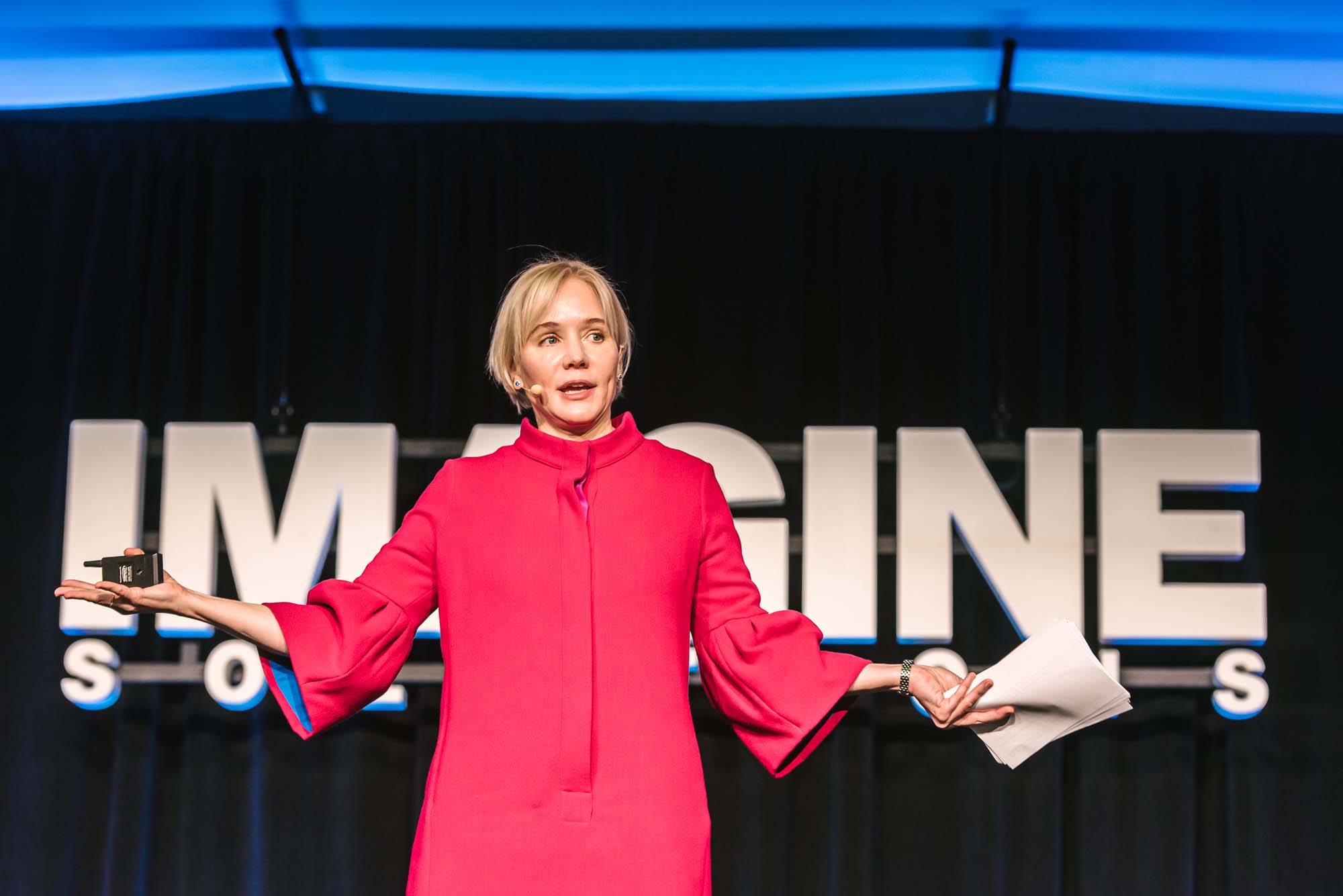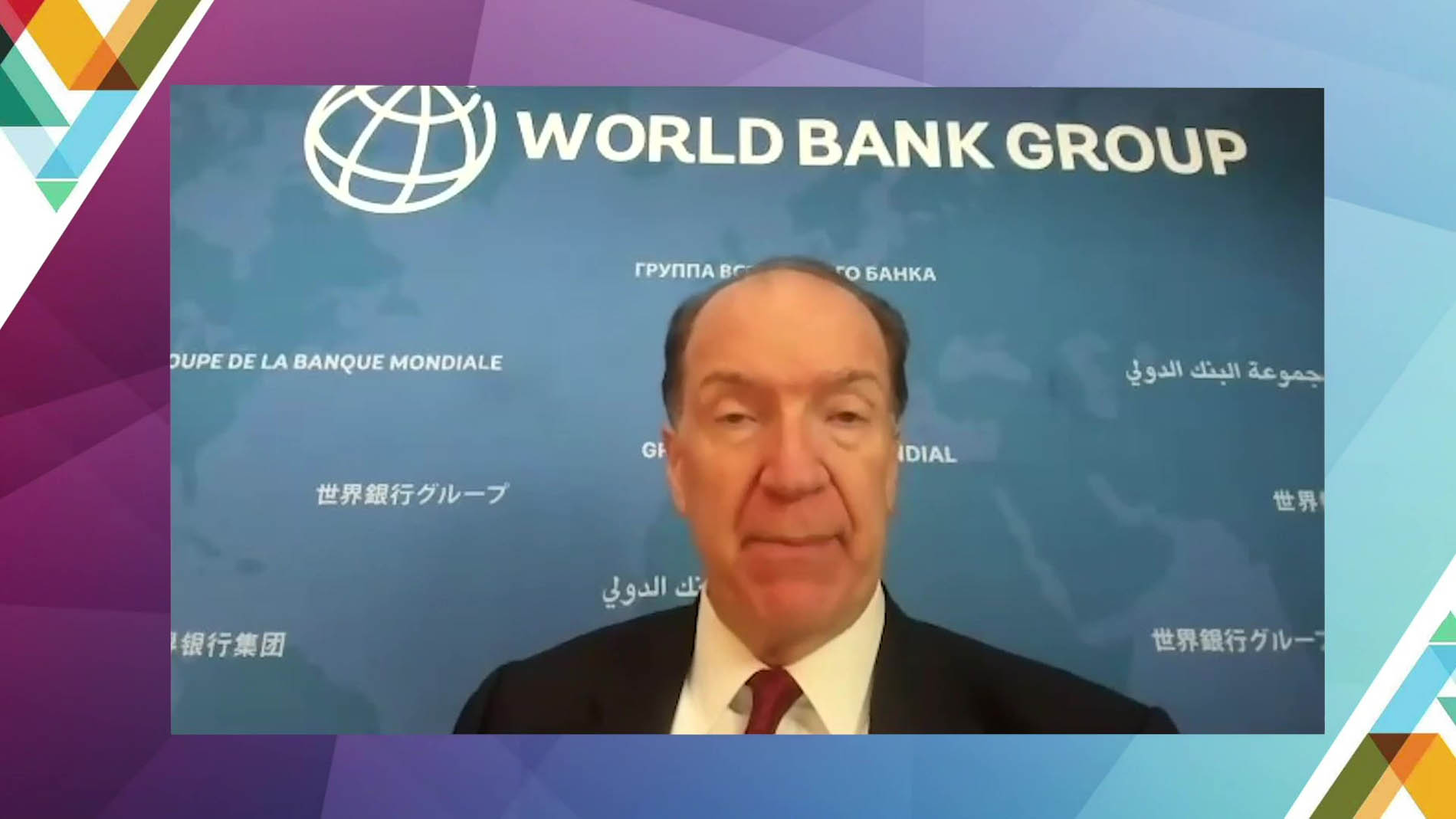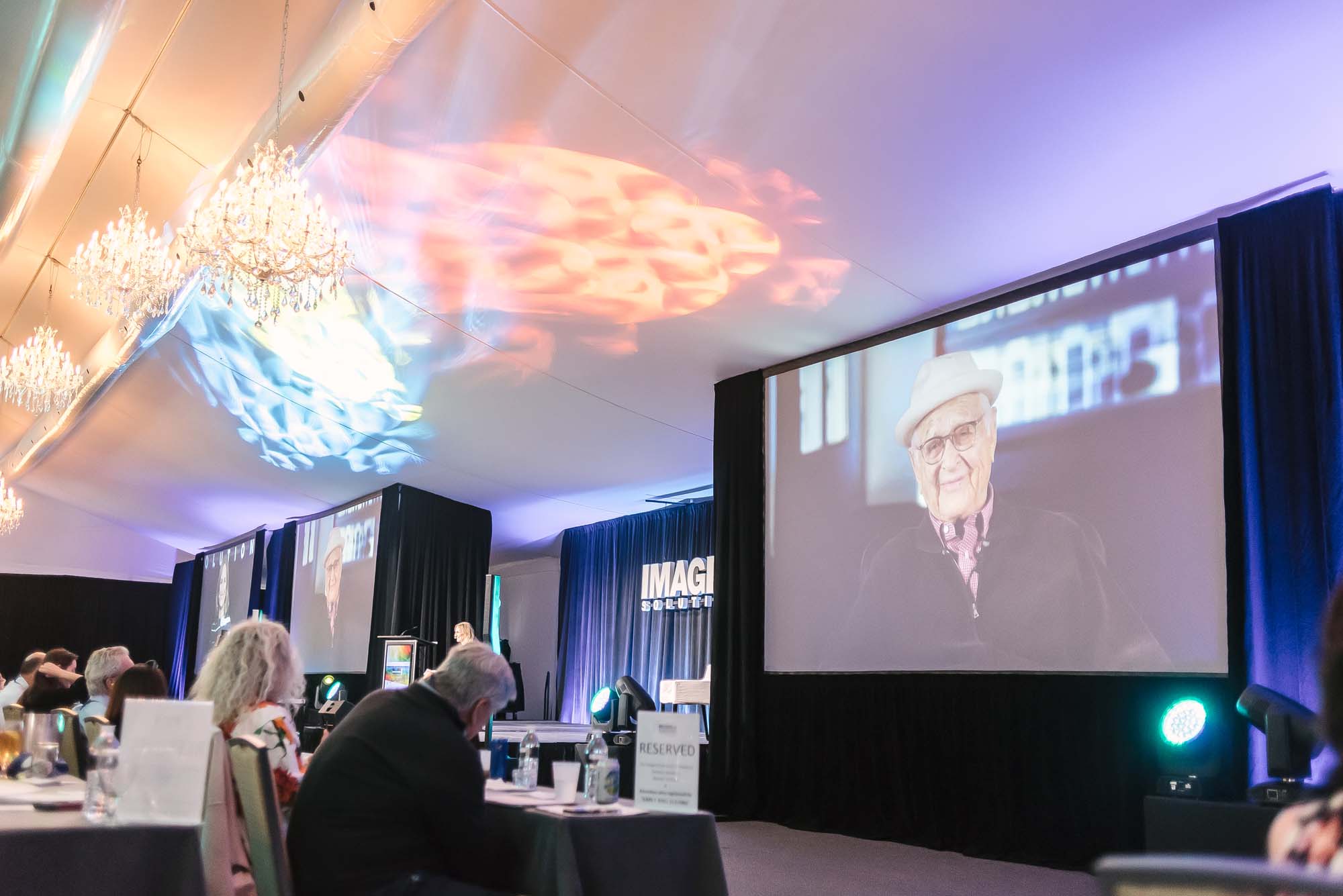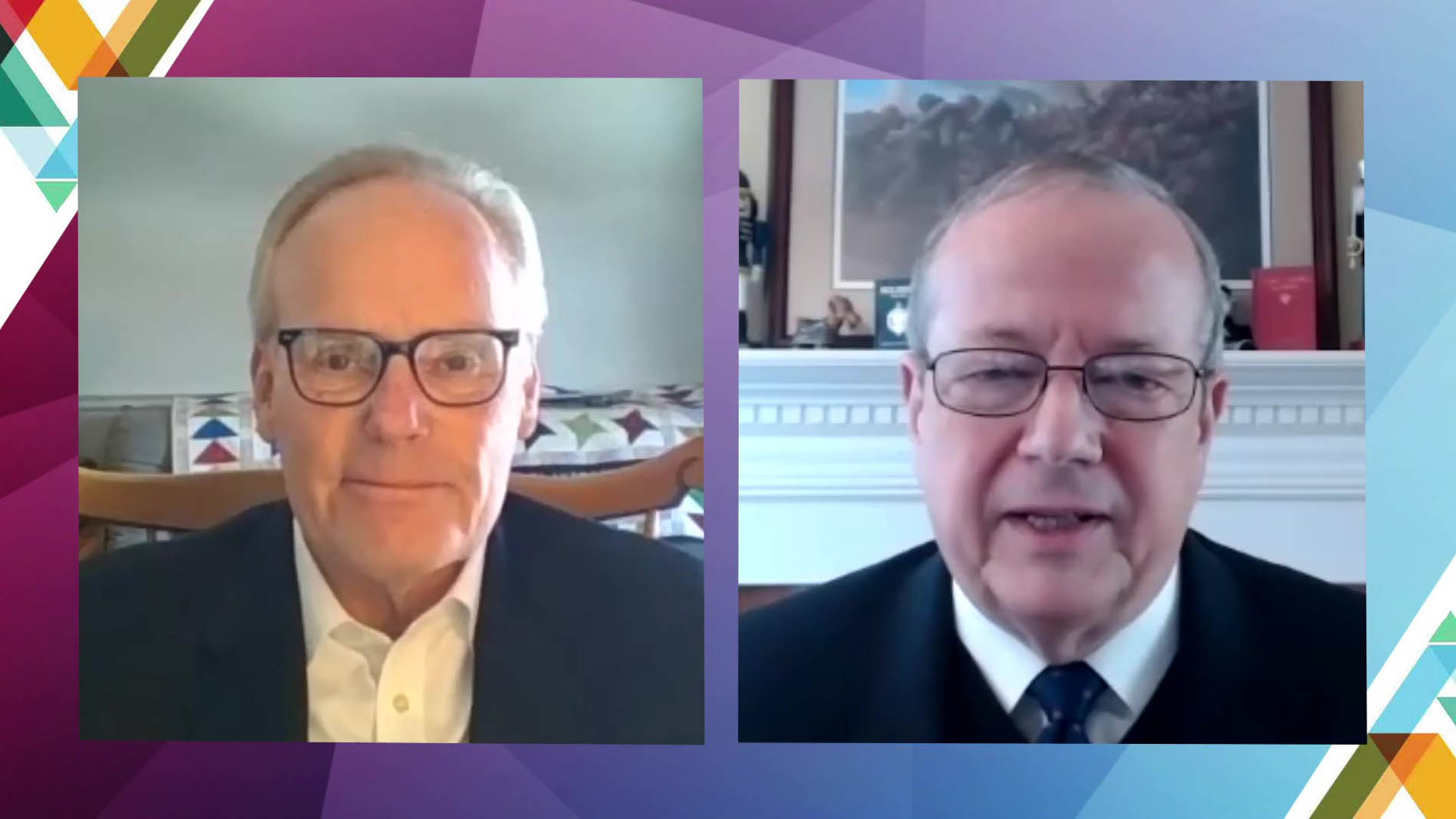Addressing our broken political system
Michael Porter has taught generations of students at Harvard Business School, and consulted to business, government, and health care leaders from around the world. Michael has joined Katherine Gehl in in her ongoing work on political innovation utilizing his tools for understanding industry competition. They present their research to motivate businesspeople and leaders across America to realign America’s political system with the public interest.
00.00
Catherine Gail is a business leader author and speaker she's not only that she was the CEO of Gail foods which is a 250 million dollar Wisconsin food manufacturing company that she held until she sold that business four or five years ago in order to concentrate on her passion which is to take a deep look at political dysfunction in the United States the high levels of dissatisfaction and the poor results that seem to attend to our political system rather and and try and and transform it reform it so that the political system and the public interest are aligned and his her collaborator Michael Porter of Harvard Business School you certainly know his name I've seen him speak before I can tell you between the two of them you are in for a real treat they're interesting approach to thinking about politics is to think about it in a fresh way namely to think about politics not as some sort of sterile off to the
01.03
side enterprise but as a competitive industry and to apply in some cases some of the things that they have both learned in their careers to reforming our political system mr. Porter is an economist he's a researcher and author adviser speaker and teacher he spent a lifetime at Harvard Business School bringing economic theory and strategy concepts to bear on many of the most challenging problems facing corporations he's the author of 19 books over 130 articles and is the most cited scholar today in economics and business Kathryn and Michael will discuss their Brown groundbreaking research and analysis on and prescription for reforming our political system please welcome Kathryn Gale and Michael Porter Thank You Tyler thank you oh I am so happy to be here I'm from
02.02
Chicago I'm about to go back to 14 inches supposedly thank you so much Tyler thank you to everybody for being here we're going to start with a couple of questions and I actually need some audience participation so please raise your hands if you drink wine or beer all right it's a very fun crowd keep your hands up if you are in general quite satisfied with the choices that you have in the marketplace of wine and beer yeah me too and now keep your hands up if you vote and do keep your hands up if you are in general quite satisfied with the choices that you have in the marketplace of politics and this is why we're here it really begs the question why in America do we have over six thousand breweries and three thousand wineries and yet when
03.00
it comes to our politics we get to choose between Soviet refrigerator a and Soviet refrigerator B oh it's very funny in the Midwest we drink more or we're friendlier I'm not sure so the answer to this question is that unlike the beer and wine industries in the politics industry we don't have healthy competition we don't have innovation results and accountability the best of what I sometimes call free-market politics and today we're going to talk about how we can get from here to there so let's start with the one thing about which virtually everybody does agree today and that is Washington is broken we say it all the time as it turns out it represents a fundamental misunderstanding of the problem in fact Washington is working exactly how it's designed to work and that design has created a huge problem
04.02
for the country which I'll illustrate with a Venn diagram so currently there is virtually no intersection no connection between our elected officials acting in the public interest and the likelihood that they will be able to get reelected so in other words if America's elected representatives do their jobs the way we want and need them to they're likely to lose those jobs and that's a crazy design we'd never do that in our businesses but fortunately it's also an optional design we can change it and again that's what today is about so in 2016 I asked Michael to join me on this new approach to fixing our politics which is as Tyler mentioned using the tools of competition and industry thinking to understand politics turns out that using these tools to look at politics sheds new light on the problems
05.02
because politics has become a major industry that functions very much like the for-profit industries for which Michael had originally developed these tools our political problems are not due to a single cause they're due to a failure of the nature of the political competition that has been created the purpose of our work is simple we wanted to figure out precisely what it would take to change the system powerfully enough to change the results that the system regularly delivers and it turns out the most important the most powerful changes and solutions Center on the very foundation of our democracy how we vote the political innovations that will recommend today will break partisan gridlock and deliver results and accountability for this for the country please know that when we talk today it's
06.03
about politics but it's not political so Michael is a lifelong Republican I used to be a Democrat now I'm in a politically homeless centrist independent and the problem is not the Democrats or the Republicans or even the existence of parties per se the problem is not in vidual politicians the problem is the system so first Michaels gonna review what's at stake and then I'll be back to talk about what's gone wrong who's to blame and most importantly how to fix it thank you okay well thank you Katherine and thank you all for being here I this is a very festive meeting that we walked into with music and now we're talking about something not so festive so I hope all of you can preserve the that positive energy that would felt earlier and let's let's turn it on to this this
07.00
topic now you know how did I get involved in this politics is the last thing I ever thought I would work on my work on competitiveness and strategy and economic development and stuff like that and you know yes I was a Republican in Massachusetts which we're proud of in Massachusetts being a Republican but but you know I didn't work at all on this I had no idea why we had such a mess on her hands and but it really got serious for me when we at Harvard Business School did something started something we called the u.s. competitiveness project and this was a commitment by the entire institution to really dig in what was going on in our economy yes we had the Great Recession but what we've discovered very quickly was the the trends that led to the great reception had started way earlier than the actual start of the recession there were things
08.01
building they were there was there was a diminishing performance already in place and and and we were very interested in trying to understand what we need to do to kind of fix these problems and we'll talk about that a little bit later this slide is kind of a single slide summary of some of the findings in that report the u.s. competitiveness report of the Harvard Business School which which you can get copies of if you're interested what we did was we asked all our alumni to tell us what they thought was going on in the economy what what are our strengths what are our weaknesses what's getting better what's getting worse and this is kind of the high-level summary of that and you can see that the u.s. fortunately has strengths that we have some very compelling strengths entrepreneurship
09.01
excellent management great universities and so on you see there but what we discovered was that there's a growing number of rather significant weaknesses that have emerged over time yeah the u.s. you know we once had the really great public education system now we don't our K through 12 system is getting worse still getting worse it's been decades of getting worse we have lousy infrastructure our worker skills are no longer the best in the world our regulatory system is very complex and very expensive and very costly and it's very distorted in many ways our legal system is very high cost there's got to be a better way the health care system is extraordinarily high cost an area where I also work extensively and more the problems we
10.03
have with our economy which were really below the surface are what has relent to the rising inequality we have in our country this has been another long-term trend rising inequality it's been going on for a long long time it's also meant that many Americans in in recent decades haven't earned really an living wage in the full sense of the term living and we also found that the participation of Americans in the workforce was actually lower now than it's been for many decades yes we have a lot of employed people but we have a lot of people that really don't have the that they want or don't have employment at all and we found that these weaknesses were getting worse and if you look at this chart and you look at the strengths that are improving who's
11.02
responsible for those topics private sector that's all in the private sector now I'm not saying the private sector is perfect but in terms of good management and entrepreneurship and great universities and innovation private sectors doing a good job where's all the problems K through 12 healthcare legal framework logisitics macro policy skill labor tax owed all in government everything on the weaknesses column turned out to be a responsibility of government and the government just hadn't been fulfilling that responsibility for quite some time now and we'll talk a little bit more about that of course at HBS we we thought oh we we can fix it we came up with what we call the eight point plan and we pick the eight policy changes that were most critical to fix the trajectory of the economy in some of the areas I just
12.01
talked about we troop down to Washington repeatedly and talk to many members I've seen hundreds of members of Congress about our diagnosis of what's going on here in America and then our recommendations of you know what needs to be fixed our eight-point plan I can tell you the following about all those visits first of all we were very we were made to feel very welcome number two everybody was very supportive of what we said oh we agree with the diagnosis you're right we agree with what we need to improve but then my life changed because as we were walking out the door over and over again I was here you know it's gonna be very hard to do those things we need to do back I'm not sure we can so all of a sudden I something hit me that had hit in much earlier and that is we've got to
13.05
deal with our political system we just can't think that good economic policy is going to get us where we need to go you can see where our alumni voted the political system should be on this chart it's our worst weakness and getting worse the fastest and that's really why we're all here today and why this is there's nothing more important in America right now than really dealing with this issue now we also discovered some time ago that that economics is only half of the problem in in our country we also have us a social agenda a quality-of-life agenda an environmental agenda we have a whole variety of things that matter to what life in America is like and what kind of society we are and how we work with each other and engage with each other we've
14.00
never been able to really benchmark that topic but I let a team that created something called the social Progress Index I won't go through the details but we looked at many many dimensions of social economic environmental performance quality of life performance not economic and we then benchmarked those against virtually every country in the world we can also compare every state in America what did we find there well at the same time as our economy was limping along and in in the longest recession in probably history it was so slow to get sorted out what we found was the u.s. is underperforming there in the social agenda as well just look at some of these numbers we compared ourselves in this chart to the other OECD or advanced countries that are kind of wealthy countries like we are you know what what is this what is this telling us we are in America we are
15.05
thirty second in the world in access to quality education that's not like something that should be we're 30 second in the world we are thirty fourth in the world in maternal mortality we are twenty fifth in the world in the country that was going to be the land of equality in the free for discrimination and violence against minorities you can read the whole list but the basic finding here is this isn't pretty either we were kind of punting on the economic changes we need to make and didn't do them but on the social agenda we got get getting much done either and there's many other areas gun violence you can just go on and on and on about the
16.01
things that would make our society better our quality of life better that we're not doing we just can't get anything done and these social things have a big part in the inequality as well so when when it kind of slippery economy meets social lack of social progress boy you end up with a lot of inequality a lot of dissension a lot of people not not doing well so the question is what's causing all this I originally thought that it was a policy problem that the guys in Washington or women who watched just weren't smart enough to set the right policies so we did it for them and with great enthusiasm to Washington to give them the answer and it turns out it was a dumb answer it wasn't gonna work because what we discovered was what Katherine's already told you the problem in America is not the parties is not the Republicans it's we have a political system problem the system is designed in
17.03
a today to not succeed to not serve our needs understand what's going on we're gonna have to look at it in a fresh way it's not just who gets elected that turns out not to be that big a deal but but it turns out if we have to understand how this system works and what incentives that it's creating that is leading to the lack of performance in terms of good results the gridlock the division the bitter partisanship what's causing all that and to do that we we had to dig deeper so let me turn it back over to Catherine and get us started in that journey great okay so I want to return to this idea that Washington is
18.00
broken as I said that's not actually the case Washington's doing what it's designed to do it's designed by and for the benefit of what we call the political industrial complex not for voters not for citizens not for the public interest so let's take a peek under the proverbial hood and then what we find is that the politics industry actually works very differently from what most of us have assumed including me until I got into this work so when I take you back to 2009 when Joe Biden became vice president his Senate seat was then open in Delaware and everybody in Delaware supposedly knew who was gonna be the next senator from the state of Delaware it was the most popular politician in the state there multiple term congressman and governor Mike castle but Mike Castle ran in his Republican primary and he lost now this was shocking news but not theoretically insurmountable because if you think
19.00
about it he could put himself in the general election as an independent and he would have won because he was by far the most well-liked politician but none of us have ever heard of a senator Mike Castle and that's because there was a slight problem for him Delaware has a law and it's called the sore-loser law and what this says is if you run and lose in your party primary democrat or republican you are not allowed do have your name on the ballot in the general election in November the question is how many states how many states have essentially an undemocratic rule like this that allows private political parties to control access to the general election ballot and the answer is 44 and we're sitting in one today now there are a few other things
20.01
we have to understand about party primaries so primaries are the reason why so many show up at the general election and think gosh I really don't like these choices that I have because over 80% of elections are actually decided in the primary and the small number of voters who regularly turn out for the primaries tend to be more ideologically extreme than the general electorate which forces candidates to go further to the right and the left then citizens as a whole really want but most importantly the party the influence of the Party primary extends to actual legislating to actually doing our business in Washington DC so it it's not just what you have to say to get elected imagine for a moment that you are a politician actually and headed hopefully to Washington DC it's not just what you have to say to get elected it's that once you're in office and you have an
21.01
opportunity to vote YES on a bipartisan compromise piece of landmark legislation perhaps to solve one of those enormous problems that Michael referred to it makes sense to ask yourself these questions is this the right policy is this a good idea is this what the majority of my constituents want but actually you don't ask yourself any of those questions the question you ask is well I make it back through my next party primary if I vote for this and if the answer to that question is no and on the important questions it virtually always is then the rational incentive to get reelected dictates that you vote no and it makes the important questions fundamentally irrelevant no occasionally duty principal could win the day and you decide to vote yes anyway well what
22.00
happens next you'll be threatened with a primary in the last 15 years primary has morphed from being just a noun the primary to being a verb to primary as in we're going to primary you and what that means is we're gonna run someone further to your left if you're a Democrat further to your right if you're a Republican it never means we're going to run a more problem-solving consensus oriented politician to your middle this system of party primaries effectively pushes our politicians right and left and makes it very difficult to govern now I want to consider a second example of our partisan system and this one isn't from elections it's from actually governing so our major parties of what we call in this competition thinking the duopoly also have perverted in a sense the legislative process for partisan gain I'm gonna give you an
23.00
example there's a rule called the Hastert rule some of you may have heard of it and it's a particularly egregious example of party control taking precedence over the Legislature's ability to solve problems so the Hastert rule has become a well accepted practice of speakers of the house all of them Democrats Republicans and what it says is that the speaker will not allow a floor vote on a piece of legislation unless it is supported by a majority of the majority which is to say a majority of the speaker's party so unless the speaker sort of ignores this rule which they do from time to time but very rarely legislation supported by a majority of the country and even by a majority of the house which is to say virtually all of the party sort of out of control and and some
24.01
members of the speaker's party even legislation like that has no chance of passing because there will never even be a vote the Hastert rule has real-life consequences and I'm going to take you back to one in 2013 we had one of our government shutdowns and that shutdown could have been entirely averted entirely or ended at any time if then Speaker John Boehner had allowed a floor vote on legislation that was already passed by the Senate and would have been signed by President Obama and it was supported by a majority of the house the whole time which was virtually all of the Democrats plus a minority of Republicans and in fact the shutdown ended only when Speaker Boehner broke the Hastert rule and broke with his
25.00
party in order to allow the vote so effectively this made-up rule again used by Democrats and Republicans cements majority party control in a legislature that is supposed to represent all citizens and in this particular case the Hastert rule cost the country twenty four billion dollars in a 16-day shutdown that 90% of the country didn't want from the start so if you think about it in the context of all the organizations you've been involved in in your life if you were committed to solving your biggest problems I suspect that one thing you wouldn't do is bring everybody together in a room like this and then say oh quickly just a moment before we get started let's count off by twos and divide into warring teams and then we'll get right to work but effectively that is the way the legislative process now works my daughter my 14 year old daughter
26.01
describes the situation best with a joke if Kahn is the opposite of pro then isn't Congress the opposite of progress she's funny okay and she's listened to this speech way too many times so she thinks I need some levity okay in in the duopoly the players advance their own interests ahead of the public interest and what's unique about the politics industry is compared to virtually every other industry is that there's no independent regulation the actors in the industry are the ones that themselves make the rules of the game so many of us mistakenly believe that the rules of our political system are set in the Constitution but in fact most of the rules that govern the day-to-day incentives and politics are set by and for the political industrial complex and for their benefit so for example you've
27.00
all heard of the pocket Constitution and there are in here six tiny paragraphs governing how the House and Senate should work and oh thank you Alex this is the house rules book this is 1,500 pages of legislative machinery and even in our research we haven't read it but I know and you know what's not in here is best practice as a problem solving it's absolutely a set of rules made up to sort of divide the spoils of power and I'm going to set it over here right on top of the Senate rules book and we can just look at that and think about what
28.01
it would mean to try to run our our organizations with that kind of bureaucracy as is always the case in life the rules of the game affect the way the game is played and affect the outcome of that game and the net result of the rules of the game in politics is unhealthy competition there's unhealthy competition in a elections and again there's unhealthy competition in legislating the net result of unhealthy competition in any industry is that customers are not well served so thus the actors in the political industry are actually thriving go to DC you can see it and yet the American public has simply never been more dissatisfied you'll see here that just two years ago a new Gallup poll came out and 57% of Americans think a third major party is needed and the percentage of Americans self-identifying
29.01
as independent is at an all-time high it's 46 percent which is far greater than the 27 percent to identify as Democrat or the 26 that identify as Republican in any other industry this large with this much customer dissatisfaction some entrepreneur would see it as a phenomenal business opportunity and create a new competitor responding to what customers want and yet that doesn't happen in politics because the duopoly works very well together in one particular way and that is to rig the rules of the game to protect themselves jointly from new competition in competition thinking we say they erect huge barriers to entry that keep out new competitors said another way politics isn't broken it's fixed
30.03
this looks like a promising antitrust case but you won't at this point be surprised to know that ever so conveniently antitrust regulation doesn't apply to the politics industry and troublingly there's no accountability for any of this and there's no accountability because the customer only has two choices so the only thing that either party has to do to win is to convince the average voter to choose them as either the lesser of two evils or because at least that party says they're for what that voter voter believes but what neither party has to do in this duopoly is to deliver results because no matter how disappointed you may be you're still going to likely prefer what your side says therefore then what the one other
31.00
choice says therefore and the question is how did it come to this and for that I turn it back to Michael thank you well this gets more and more cheerful as we go along so now let's just burrow down a little bit more deeply into the nature of the competition that's been created here and of course some of you we're gonna laugh when you see this but there's a diagram that some of you may have been forced to learn in business school it's called the five forces analysis of an industry and as Kathryn has said this politics is an industry it's not a public institution it's not people with that public service mindset it's an industry and they're competing and there's massive amounts of money involved here that people are actually thriving in attracting so what is the
32.00
politics industry look like well first of all it's really intricate and we spent years really trying to understand all the complex rules and subtleties of how this all works but when you look at any industry you always want to start in the middle there which we call rivalry so the heart of competition is the rivals the people that Coke and the Pepsi you know whoever is competing head-to-head here it's the Republicans and the Democrats those are the rivals they are dominant there is no other game so that's why Kathryn uses the phrase and we use the right duopoly this is a duopoly there's only two and they are very dominant and it's not just their market share it's a lot of other things that will cover very briefly what are they competing on they're competing on two things one they're competing to win elections which takes place now through the partisan
33.00
primary system and they're competing to govern to get their way in governing to pass the legislation they want not the legislation necessarily that they agree with the other party we should want okay so they're competing very fiercely they're very a lot of edge in those parties and they really compete and what we see whatever we have in duopoly what we have two dominant competitors thinking there are other industries you know there was in the old days it was Coke versus Pepsi in the old days there was Airbus vs. Boeing Boeing is sort of a little bit troubled right now but it'll get back to being the door part of the duopoly there too whenever we look at duopoly we see some very important points that we have to understand number one is when you have two dominant competitors they don't want to compete head-to-head they don't want to because
34.04
if you're facing a gargantuan large competitor and you go head-to-head that's a pretty destructive competition it's hard to win it's hard to prevail your lesyk if you're doing the same thing as your rival and you're less accountable you're you're less accountable then then you you like to be so so the first thing we have to understand is the parties they don't want to go head-to-head they don't compete for the average voter why because if they competed for the average owner they'd be going a head-to-head and they'd be making promises of the same people and then they can you know have little differences in whether they met them or the other guy met them at least they would have some accountability to meet the promises right now there is no accountability in the duopoly
35.00
the parties don't compete for the middle not going for the median voter if they were going for that median voter again it'd be hard to win if the median voters didn't like them they'd get kicked out but they don't do they don't compete that way what they've done instead is a classic business strategy ploy they have divided the voters they have segmented the voters into two big segments there's the segments that the Republicans have focused on and then there's the segments that the Democrats have focused on and those core customers who the parties are trying to serve they're not trying to serve the average voter they're not trying to serve the middle who they're trying to serve are these two customer groups which consists of partisan
36.00
primary voters why Catherines told you why really important number two they're they're competing for special interests that are aligned with that party's ideology so there are certain special interest areas that are more oriented to the laughter to the progressive side there's other special interests that are more oriented towards the conservative or the Republican side and essentially what the parties have said is let's divide up the customers and the ones that vote in all our prime partisan primaries because they're more again likable to what we knew and all the special interests really care about our philosophy we'll compete with that group and the other side will compete with the other group that's the way it works and that is enormous ly disruptive for our society and we'll get more into all the
37.01
the reasons why but also what to do the good news is there is a way we can deal with this we can fix this so we'll get there hopefully as soon as possible so won't be too depressed so in addition to the duopoly and these customer groups you can see on the right hand side there's there's citizens donors primary voters and special interest and and the focus of each party is their primary voters and the special interest on their side citizens not interesting donors if they're really big they also tend to be in one of those other categories they might be a special interest interested in this which fits with the Democratic side or the Republican side okay so there's customers and what I just told you is these custody these competitors don't see each customer as equal we're
38.02
not all equal they see a certain set of customers and a segment of customers as the ones that will give them the most value in terms of votes and money and that's what they're competing on okay so customers are very interesting in this industry and I didn't say the customer is the average voter the customer is the public interest the customer is the citizens no no no that's not who they're serving it's not who they're serving and you start watching and listening and it'll be become very clear to all of you if it already is it in every industry we have customers we also have suppliers you see here who the suppliers are to this industry it's a big complicated industry it takes a lot of energy a lot of people to run elections these days there's a lot of Technology a lot of voter data a lot of staff and expertise to run these campaigns and essentially
39.02
what's happened is both parties need the suppliers the same suppliers but the suppliers now have been divided into two groups there's the suppliers to Republicans and then there's a suppliers to Democrats if you're a Republican campaign manager and you ever work for a Democratic campaign your career is over you got to choose you're in one camp or the other and that's true for every single one of these groups and sadly it even includes think tanks think tanks used to be neutral now they're not you're either a more left outside or a right side think tank so what you see here is not only are you targeting very different customers but your suppliers are in two camps and they're reinforcing the bitter partisanship between their way and your way that's how this game is played every
40.01
day in Washington and elsewhere another critical part of any industry is channels how do you reach the consumer there's a list there you can see part of it is just direct voter contact you have an event people come not so much of that these days but there's a lot of paint advertising a lot of media independent media so-called there's a lot of social media now and what's happened with the channels is pretty much the same thing that's happened with the suppliers they've been divided the parties control their channels whether they're independent media like CNBC versus MSNBC or whether they're their Vic they're their field force that does the ground game their whole advertising infrastructure to produce the advertising so not only do we have the suppliers facing off on to opposite sides but we also have the channels that
41.00
used to be a sort of independent neutral force have been co-opted by the parties and then the last key thing about this industry well there's two things but one is that that as Kathryn said the barriers to entry are incredibly high here how do you know the barest entry are high to getting into the politics industry well the answer is that we haven't had a new party succeed since 1854 that was the last really new successful party we've had some parties try but they don't really get anywhere even Teddy Roosevelt Artie didn't really get very far Prospero didn't really get very far so there's something about the barriers to entry here and the barriers are they've controlled the suppliers so if you're somebody outside of the game you can't get a campaign manager they control the
42.02
channels they have enormous economies of scale because they're running hundreds of elections all the time you come in as a new party no way you're going to be able to match their expertise and then their scale effects and more and more that's an example of what catherine said when you're in a duopoly another thing you learn is you want to cooperate to make the industry more attractive to you that's what they've done and the money's just pouring in it's pouring in massive amounts of money are pouring in both to the parties themselves but also to the whole lobbying infrastructure six seven million dollars every single year it's a big prosperous industry even though it's not working for us it's supposed to work for us it's not it's working for them substitutes
43.01
are alternative ways of competing besides a new party here would be independence but for the same reasons I've discussed independents are getting nowhere they never get elected why because again the barriers to entry and some of these rules that catherine has talked about and we'll talk about make it almost impossible for an independent to win even though 46% of people say I stand for being an independent no independent is ever get election that seems weird it's not actually if you understand the rules so what are the implications of this well I remember when we first came what wrote this chart and it was probably one of the most depressing days of my life what are the implications of this industry that we've just discussed in this petition that we've just discussed political competition is not about solving our problems political
44.00
competition is all about ideology I'm super conservative I'm very progressive and I care not about solving the problem of X Y or Z what I care about is preserving that ideology preserving that view of the world which is I believe in but what we find is although you know there's some ideological things that are you know you understand why people think that way ideology never determines good public policy because it's too complicated you don't want free trade or protectionism that's not your choices that's the ideological view what you want is is a blend which takes advantage of the fact that trade have some good benefits but you got to make sure that trade is fair so a good trade policy is going to deal with the complexities of stitching those things together that takes cooperation
45.02
it takes collegiality it takes problem-solving which we have in America today none none and done now wonder we're not passing any legislation no wonder we're not solving any of the big problems the one example that we've passed in recent during recent administration is the tax bill which I'm sure given the business group in this audience it probably you were happy they did it and we definitely needed a corporate tax reform because we had this weird system where he had to pay taxes overseas and then you had to pay US taxes in the US and then you couldn't take the overseas profit and bring it back it was a big mess we needed to fix it and we did fix that but it was also a very partisan bill it was the the the
46.00
reduction in the corporate tax rate was much higher than it need to be and that's why we're there talking now about our deficit being how much even reading the paper lately 1 trillion dollars and it's because we made such a huge hit in the in the rate and we didn't raise anything else and we didn't really restructure in any way the system the bill it was a really a lost opportunity it's bad policy this is getting depressing even to me ok hate to move to solutions yeah ok so I think what we're gonna do now is move to solutions and you can see all the other things on this list and clearly it's not gonna happen by itself so let's talk about solutions thanks guys oh thank you Michael okay I know I'm gonna fall one of these days and that was almost it okay so we are now at the part for
47.03
solutions I want to summarize the theory of change in any game boards games sports games serious games like politics as we said the rules of the game affect the way the game is played and affect that outcome so to transform a politics system we have to re-engineer the rules of the game to incent healthy competition on dimensions that matter to the public interest what we need is political innovation and we propose changing the two major structural problems that are the largest contributors to the unhealthy competition the first is party primaries which we really talked about but I'll give you a way to think about it think of the party primary is creating essentially a proverbial I of the needle through which no problem-solving politician can pass and that makes it hard to work constructively and that's one of the key reasons we don't get results and then the second thing is that we have no accountability for not getting results
48.02
because as we said before we only have these two choices and there's no new competition which is a segue into the second problem plurality voting something you may never even have heard of her thought about so back when our founders and framers were setting things up there weren't great examples of how to really do the day-to-day business of a democracy so they borrowed from Britain the way that we would vote and essentially the rule is you win an election if you have the most votes but you don't have to have in America a true majority you don't have to have over fifty percent so for example in a three-way race a candidate could win with 34% of the vote meaning 66 percent split between the other two candidates now that means we didn't elect the candidate with a broad appeal to the majority of voters but the real problem is it's an enormous barrier
49.01
to new competition because it creates what we call the spoiler problem think back to 2016 for some here you may recall not being able to vote for the candidate that appealed to you the most out of fear that it would inadvertently contribute to the election of the candidate you liked the least for example if you liked the Green Party candidate Jill Stein you weren't supposed to vote for her because that would take votes away from Hillary spoil the election for her and help elect Donald Trump and on the other side if you liked libertarian Gary Johnson you still weren't supposed to vote for him because that would take votes away from Trump and spoil the election for him and help elect Hillary but far more often the spoiler problem keeps candidates from ever running in the first place so
50.00
go back to earlier this year or last year in the spring the former CEO of Starbucks Howard Schultz considered very publicly running as an independent a centrist independent in the presidential election and the outcry from Democrats was loud and vicious because they believed that he wouldn't win but that he would take enough votes away from the eventual Democratic nominee that he would turn the election over to Donald Trump and that is precisely the kind of problem that plurality voting creates if you think about it politics is the only industry where we are regularly told that less competition is better for the consumer and it doesn't matter if any of us think that Howard Schultz would have been the best president or not we can all recognize that there's something unhealthy about a system we're having more talented successful passionate
51.02
people competing is somehow bad so the net result of these party primaries and this plurality voting is unhealthy competition as we said before that means customers aren't well served so to transform the system we have to transform these two things we do that with a package we call final five voting final five voting will break the partisan gridlock and incent results and accountability with final five voting we change two things we're gonna change one in the primary and one in the general election so first as you might imagine let's just get rid of broken party primaries and instead we'll turn to a top five primary so what that would mean is you should go up go to the election every you don't vote in the Democrat primary the Republican primary you vote on in the the primary and everybody running is on the same ballot regardless of their affiliation independents greens Democrats Republicans libertarian and the top five finishers advance out of
52.03
that primary to the general election then the second piece is we get rid of the broken plurality voting system and we replace it with ranked choice voting in the general election and I'll explain how that works so think of having these five candidates that came out of the primary and then essentially think of being at a cocktail party or some other place where you're gathering before the election you have this conversation that we all know how to have which is oh my gosh I really want so-and-so to win that's my she's or he is my favorite and then you know okay I guess I'd be okay with that one and I won't move to Canada if it's number three but boy oh boy if it's you know number five that's an over my dead body candidate for me and what we do with ranked choice voting is we get to express these feelings at the ballot box
53.00
and in in the election in the voting location this is what your ballot will look like it's just a really simple grid and you put your preferences on in this way so for me here I chose Alexander Hamilton first just because I love the musical and you can see it goes all the way to John Adams to me my last choice now after everybody's expressed their preferences here you can rank as many or as few as you want the polls close and then we count the first-place votes alone if one of these five candidates has a true majority over 50% well great the elections over that candidate wins but if nobody has the support of the majority of voters then the person who came in last is eliminated and if you had selected the candidate who's now out of the race your vote transfers to your
54.01
next choice then we count again and this process continues until one candidate reaches majority support so it's basically a series of run offs but instead of having to keep coming back for a new election you cast all of your votes at once rank-choice voting ensures that we always elect the candidate with the broadest appeal to the most number of voters but most importantly it eliminates this single this great barrier to new competition it eliminates the spoiler problem which leads to healthy competition to solve problems and deliver results for the country so final five voting which is to say this combination of top five primaries and rank-choice voting in the general actions will powerfully alter the incentives let's reimagine Congress post
55.00
elections post these electoral innovations so remember when we had this bipartisan compromise landmark bill and the elected representative you could not vote yes well now you have that exact same bill in front of you and you can say to yourself Wow under the old system I never would have made it back through my primary if I voted for this but under the new system I'm pretty sure that it can be in the top five and then in the general election with a combination of first and second-place votes I can craft a win I can now vote yes if it's in the public interest so let's revisit our initial Venn diagram remember there's no connection today between acting the public interests and the likelihood of getting reelected but when we implement final five voting and change our primaries in general we create that intersection which gives us healthy
56.01
competition this means that the actors in the politics industry are incented to do what we as a country need them to do and that's the real power of political innovation so what's next we need to pass final five voting across the country it happens in each state individually and that's the macro need but what can we do three things join the campaign in your state or found one if there isn't one and these innovations are not just talk campaigns are being created around the country in fact there's one in Florida to get rid of the party primary system and move to top two primaries so it's not top five but it it increases the size of the eye of the needle and if you want to be involved in that let me know on your cards and we can connect you and then if
57.01
you want to found one in your state we'd love to talk to you about that as well we have an Institute for political innovation that helps get these started of course we need to fund and everybody always asked me well what's it going to take and I'd like to refer to something I have a friend David Crane and he coined this term for political philanthropy which he calls a special interest for the general interest and I believe that political philanthropy offers the best ROI of any philanthropy out there today in part because the dollars actually aren't as prohibitive as we might have thought so let's scale it signers of the villain Gates Billa Melinda Gates Giving Pledge the billionaires who have agreed to give away half of their wealth collectively have pledged over three hundred billion dollars and annually all Americans give four hundred billion dollars every year to charitable causes the cost to deliver final five voting per state is between
58.02
five million dollars for a small legislative state and twenty to thirty million dollars for a large referendum state like California so if I take an average of 15 million across 20 states that's three hundred million three hundred million dollars is less than five percent of what was spent in the federal elections of 2016 and yet three hundred million for final five voting is far more likely to sustainably impact the trajectory of four trillion dollars of government spending so I'm on the board of the United where we're raising a hundred million dollars to invest in these changes across the country and if you are interested in becoming a political innovation philanthropists you can just let me know as you might imagine okay the final thing is we have to evangelize we have to let people know that it doesn't have to be this way and the good
59.00
news is that this is nonpartisan so you can talk about it at all of your family gatherings I'm personally at a hundred percent success rate with all my airplane seat mates in the last year and if I can like sort of be drawing a Venn diagram on the cocktail napkin before we take off then I give myself an A additionally I'm now trying to encourage them to order pre-order my book while I'm still sitting there I just look over their shoulder on the phone so I'll encourage you all to also pre-order our book because it matters in evangelizing which is we have to get critical mass of understanding that it doesn't have to be this way historically the American political system was a critical foundation of the United States success and yet now it stands in the way of virtually every important issue we need to address yet we have every reason to be optimistic perhaps even profoundly optimistic because when you look at it this way the reasons for our dysfunction are now so clear and rational and the way forward is clear as well this country was founded on the greatest political innovation of modern times and political innovation is the key to our future so I'd like to close with an invitation to action Thomas Jefferson is said to have said my HBS fact-checkers said he didn't really say it but he said to have said we don't have government by the majority in America we have government by the majority who participate and historically I thought that meant I needed to participate by voting or perhaps really energetically supporting a candidate but it turns out that it also means that we have to participate in the design of the rules of the game of our political system
01.00
changing the rules of the game to incent healthy competition and politics opens whole new possibilities for our future opens the possibility of results and accountability and reclaiming the promise of our republic this great American experiment is the challenge of our times and Michael and I hope that you will join us thank you so much

